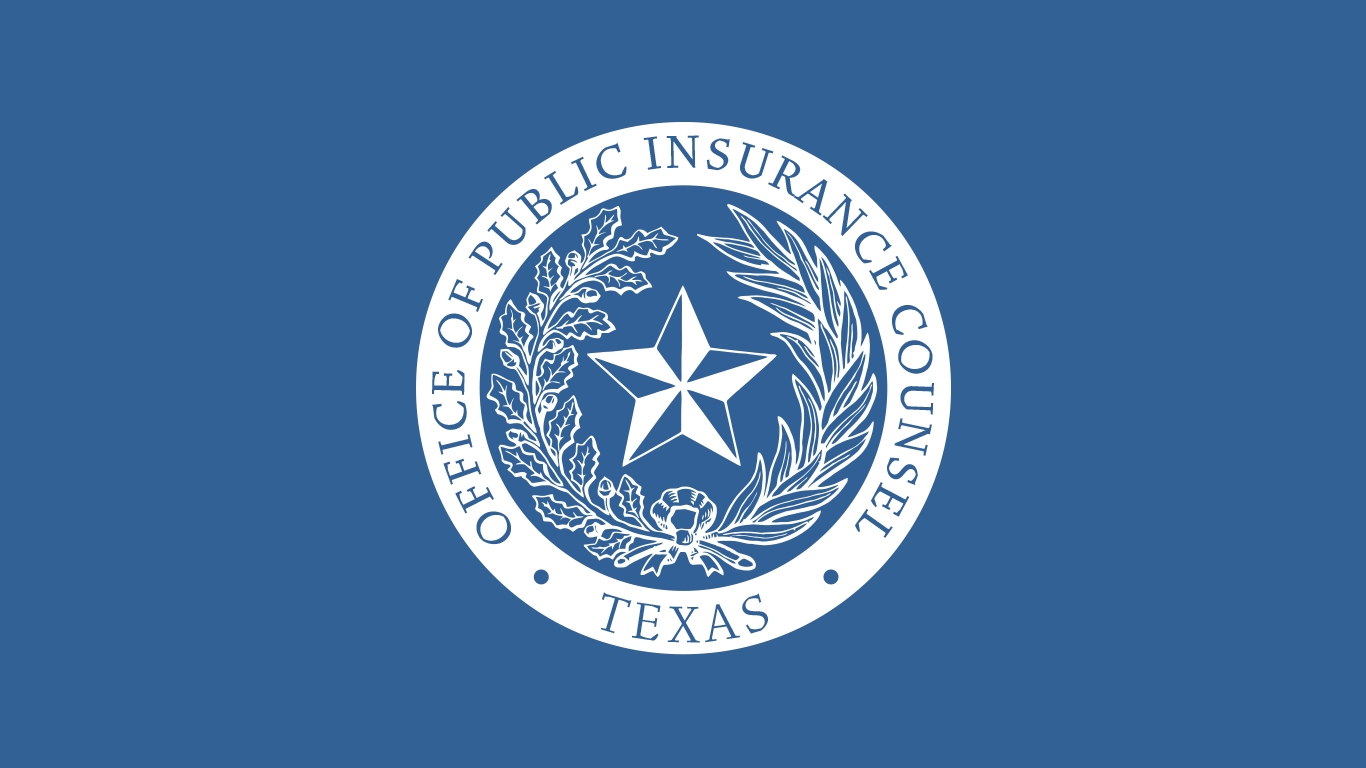Home>Finance>What Is South Carolina’s Required Grace Period For A Life Insurance Policy?


Finance
What Is South Carolina’s Required Grace Period For A Life Insurance Policy?
Published: February 21, 2024
Learn about South Carolina's required grace period for life insurance policies and ensure you stay compliant with state regulations. Get valuable insights on finance and insurance requirements in South Carolina.
(Many of the links in this article redirect to a specific reviewed product. Your purchase of these products through affiliate links helps to generate commission for LiveWell, at no extra cost. Learn more)
Table of Contents
- Introduction
- Understanding Grace Periods for Life Insurance Policies in South Carolina
- South Carolina’s Required Grace Period for Life Insurance Policies
- Consequences of Missing Life Insurance Premium Payments in South Carolina
- How to Utilize the Grace Period for Life Insurance in South Carolina
- Conclusion
Introduction
Life insurance is a vital financial tool that provides protection and peace of mind to individuals and their loved ones. It serves as a safety net, offering financial support in the event of an individual's passing. However, ensuring that a life insurance policy remains active and effective requires timely premium payments. Understanding the grace period for life insurance policies in South Carolina is crucial for policyholders to avoid potential lapses in coverage.
In South Carolina, as in many other states, life insurance policies come with a grace period that allows policyholders additional time to make premium payments after the due date. This grace period offers a buffer, preventing an immediate lapse in coverage if the payment is not received by the due date. It is essential for policyholders to comprehend the specifics of this grace period, including the duration and potential consequences of missing payments, to safeguard the benefits and security provided by their life insurance policies. Understanding the nuances of the grace period empowers policyholders to make informed decisions and take necessary actions to maintain their coverage.
This article aims to explore the required grace period for life insurance policies in South Carolina, shedding light on the regulations and implications associated with premium payments. By delving into this topic, individuals can gain valuable insights into the protective measures in place and the steps they can take to navigate the intricacies of life insurance in South Carolina. Understanding the grace period's significance and the associated guidelines equips policyholders with the knowledge needed to make sound financial decisions and protect their loved ones' future.
Understanding Grace Periods for Life Insurance Policies in South Carolina
Grace periods are a fundamental aspect of life insurance policies, providing policyholders with a window of time beyond the premium due date to submit payments without facing immediate consequences. In South Carolina, as in many other states, insurance regulations stipulate the minimum duration of this grace period, offering a safeguard against unintentional lapses in coverage.
During the grace period, the life insurance policy remains in force, allowing the policyholder to rectify any missed payments and maintain continuous coverage. It is important to note that while the policy remains active during this period, the benefits payable in the event of the insured individual’s passing may be impacted if the premium is not paid within the specified grace period.
Policyholders should familiarize themselves with the specific duration of the grace period outlined in their life insurance policies. In South Carolina, insurance regulations typically mandate a minimum grace period of 30 days for traditional life insurance policies. This means that policyholders have 30 days beyond the premium due date to submit the required payment without risking a lapse in coverage.
Understanding the grace period’s duration is crucial for policyholders to effectively manage their life insurance obligations. It provides a clear timeframe within which premium payments must be made to ensure uninterrupted coverage. Additionally, being aware of the grace period empowers policyholders to take timely action, avoiding potential disruptions in their life insurance protection.
Furthermore, the grace period serves as a safety net for policyholders who may encounter temporary financial challenges or face unexpected circumstances that impact their ability to make timely premium payments. It offers a reasonable window of opportunity to address payment issues without immediately forfeiting the benefits and protections provided by the life insurance policy.
By comprehending the purpose and duration of the grace period for life insurance policies in South Carolina, policyholders can proactively manage their financial responsibilities, safeguard their coverage, and ensure that their loved ones remain protected by the benefits of the policy.
South Carolina’s Required Grace Period for Life Insurance Policies
In South Carolina, the state’s insurance regulations mandate a minimum grace period for life insurance policies to provide policyholders with a reasonable timeframe to submit premium payments after the due date. The required grace period serves as a protective measure, ensuring that policyholders have an opportunity to maintain their coverage without immediate repercussions for missed payments.
As per South Carolina insurance laws, the minimum grace period for traditional life insurance policies is set at 30 days. This means that policyholders have a 30-day window following the premium due date to make the necessary payment and prevent a potential lapse in coverage. It is important for policyholders to be aware of this regulatory requirement, as it outlines the timeframe within which premium payments must be submitted to uphold the continuity of their life insurance protection.
By establishing a 30-day grace period as the minimum standard, South Carolina’s insurance regulations aim to provide policyholders with a reasonable opportunity to address payment issues and maintain their life insurance coverage. This grace period acknowledges the potential challenges and unforeseen circumstances that individuals may encounter, allowing for flexibility in premium payment timelines without immediate detriment to the policyholder’s protection.
Policyholders in South Carolina should familiarize themselves with the specifics of the required grace period outlined in their life insurance policies. Understanding the duration of the grace period empowers policyholders to effectively manage their premium payment timelines and take necessary actions to uphold their coverage. Additionally, being informed about the regulatory requirements regarding grace periods enables policyholders to make informed decisions and navigate their life insurance responsibilities with confidence.
It is important to note that while the 30-day grace period provides a buffer for late premium payments, policyholders should strive to submit their payments within this timeframe to avoid any potential disruptions in coverage. Adhering to the grace period guidelines ensures that the benefits and protections offered by the life insurance policy remain intact, providing financial security for the policyholder and their beneficiaries.
Consequences of Missing Life Insurance Premium Payments in South Carolina
Missing premium payments for a life insurance policy in South Carolina can have significant consequences that impact the policyholder’s coverage and the benefits payable to beneficiaries. Understanding these potential repercussions is crucial for policyholders to grasp the importance of timely premium payments and the implications of failing to adhere to the required payment schedule.
One of the primary consequences of missing life insurance premium payments in South Carolina is the risk of a lapse in coverage. If a policyholder fails to submit the required premium within the grace period specified by the policy and state regulations, the insurance coverage may lapse, leaving the individual and their beneficiaries without the intended financial protection. A lapsed policy can result in the forfeiture of benefits and the termination of coverage, potentially leaving loved ones vulnerable in the absence of the anticipated financial support.
Additionally, missing premium payments can lead to the loss of certain policy features or benefits. Some life insurance policies offer accumulated cash value or other investment-related benefits that may be adversely affected if premium payments are not made in a timely manner. Policyholders risk losing out on the growth and potential benefits associated with these features if their policies lapse due to missed payments.
Furthermore, a lapsed life insurance policy may necessitate the reinstatement of coverage, which could involve additional requirements and costs. Reinstating a lapsed policy often entails fulfilling specific conditions, such as providing evidence of insurability or paying outstanding premiums, along with potential administrative fees. This process can be complex and may pose challenges for policyholders who have allowed their coverage to lapse due to missed payments.
Policyholders should also consider the potential impact on their beneficiaries if the life insurance coverage lapses due to missed premium payments. The intended financial protection and support for loved ones may be compromised if the policy is no longer in force at the time of the insured individual’s passing, highlighting the critical importance of adhering to premium payment obligations.
Understanding the consequences of missing life insurance premium payments in South Carolina underscores the significance of proactive financial management and timely payment adherence. Policyholders can mitigate these risks by staying informed about their premium payment responsibilities, utilizing the grace period effectively, and prioritizing the maintenance of their life insurance coverage to safeguard the intended benefits for their beneficiaries.
How to Utilize the Grace Period for Life Insurance in South Carolina
Effectively utilizing the grace period for life insurance in South Carolina is essential for policyholders to maintain their coverage and prevent potential lapses that could impact the intended benefits of the policy. Understanding how to navigate the grace period empowers policyholders to manage their premium payments and ensure the continuity of their life insurance protection.
Upon realizing that a premium payment may be missed, policyholders should promptly review the terms of their life insurance policy to ascertain the duration of the grace period provided. In South Carolina, the minimum grace period for traditional life insurance policies is typically 30 days, affording policyholders a reasonable timeframe to rectify any missed payments without immediate repercussions.
During the grace period, policyholders should prioritize submitting the overdue premium payment to the insurance company. It is crucial to adhere to the guidelines outlined in the policy and state regulations regarding the acceptable methods of payment and the timeframe within which the payment must be received to maintain uninterrupted coverage.
Communication with the insurance company is key during this period. If a policyholder anticipates challenges in making the overdue payment within the grace period, contacting the insurance provider to discuss the situation and explore potential solutions is advisable. Some insurers may offer flexibility or alternative arrangements to accommodate temporary financial constraints while enabling policyholders to uphold their coverage.
Policyholders should also take proactive measures to address any underlying reasons for missed payments, such as updating payment information, adjusting the payment schedule, or reviewing their financial circumstances to ensure timely future payments. Utilizing electronic payment methods or automatic withdrawals can help streamline the premium payment process and reduce the likelihood of missed deadlines.
It is important to recognize that the grace period is a valuable opportunity to rectify payment issues and maintain the benefits and protections provided by the life insurance policy. By leveraging this additional time to address missed payments, policyholders can mitigate the risk of coverage lapses and safeguard the intended financial security for their beneficiaries.
Ultimately, understanding how to utilize the grace period for life insurance in South Carolina empowers policyholders to take proactive steps, communicate effectively with their insurance provider, and prioritize the timely submission of premium payments to uphold their coverage. By leveraging the grace period effectively, policyholders can navigate temporary financial challenges while ensuring the continuity of their life insurance protection.
Conclusion
Understanding the grace period for life insurance policies in South Carolina is paramount for policyholders to navigate the intricacies of premium payments and maintain uninterrupted coverage. With the state’s minimum grace period set at 30 days for traditional life insurance policies, individuals have a reasonable window of time to rectify missed payments and uphold their coverage without immediate repercussions.
The grace period serves as a protective measure, offering policyholders flexibility in managing their premium payment timelines and addressing temporary financial challenges. By leveraging this additional time, policyholders can prioritize the submission of overdue premium payments, communicate effectively with their insurance provider, and take proactive steps to ensure the continuity of their life insurance protection.
Policyholders should be mindful of the potential consequences of missing premium payments, including the risk of coverage lapses and the potential impact on the benefits payable to their beneficiaries. By staying informed about the grace period’s duration and regulatory requirements, individuals can make informed decisions and navigate their life insurance responsibilities with confidence.
Utilizing the grace period effectively involves prompt action, open communication with the insurance company, and proactive measures to address underlying reasons for missed payments. By adhering to the guidelines outlined in their policies and state regulations, policyholders can safeguard the intended financial security provided by their life insurance coverage.
In conclusion, the grace period for life insurance in South Carolina serves as a vital safeguard, empowering policyholders to manage their premium payment obligations and maintain the benefits and protections offered by their policies. By understanding and utilizing the grace period effectively, individuals can navigate temporary financial challenges while ensuring the continuity of their life insurance coverage, ultimately providing essential financial security for their loved ones.














